This post may contain affiliate links. When you click and purchase from any of our links, we may get a small commission at no extra cost to you. For more information, please see our affiliate disclosure.
Educational board games aren’t just for passing the time—they’re powerhouses of learning. They mix fun with tested learning methods, turning tricky tasks into joyful challenges. You’d be amazed how a game with dice and cards can boost math skills or fire up scientific curiosity.
Board games have been a staple in homeschooling families for years, offering a playful approach to traditional lessons. The tactile learning experience they provide is invaluable, engaging players in a way digital learning tools sometimes can’t compete with. Think about the times you’ve sat around a table, discovering new strategies with each play-through—it’s that blend of active engagement and learning that makes them so effective.
The benefits extend beyond just drinking in facts or figures. As kids play, they’re picking up critical thinking skills and learning how to strategize. They’re also developing patience and teamwork as they let someone else take their turn, or learn to lose gracefully (not always easy!). These games are ideal for families aiming to build a solid foundation of skills through joyful, shared experiences.
Adding educational board games to your homeschooling activities makes learning feel less like work and more like play. These games often sneak in educational content without kids even realizing they’re learning; it’s like a fun little secret between the game and you. Ready to explore this exciting world? Let’s dive into how these games can transform your homeschooling journey!
Selecting the Right Board Games for Homeschooling
Choosing the perfect board game for your homeschooling adventures can feel a bit overwhelming with all the options out there. But don’t worry, I’ve got a few tips to help you navigate the choices and find games that hit the sweet spot between fun and educational value.
First up, think about the skills you want to focus on. Whether it’s math, reading, science, or social skills, there’s likely a game designed to boost those areas. Narrowing down your objectives helps in picking a game that aligns well with your educational goals.
Another thing to consider is the game’s adaptability. Some games offer multiple modes or challenges that grow with your child, making them a worthwhile investment over time. This versatility means the game doesn’t just end up sitting on a shelf post-lesson.
Age-appropriateness plays a big role, too. You want games challenging enough to be educational but not so difficult that they discourage the kiddos. Check the age recommendations as a starting point, but use your own judgment based on your child’s capabilities.
Cost and availability are practical factors as well. While it’s tempting to grab the latest and greatest, remember that some timeless classics are both affordable and easily accessible. Trust those titles that have stood the test of time and continue to provide value.
Lastly, consider how a game fits into your family’s unique learning style. Some families thrive on highly competitive games, while others prefer more cooperative or storytelling formats. Picking a game that meshes well with your style makes hours of play feel effortless and rewarding.
Top 15 Educational Board Games for Homeschoolers
Here’s the fun part—digging into the top games that are not only entertaining but super educational too. This list isn’t just any collection; it’s curated based on how well these games can integrate into a homeschooling setup, blending learning with excitement.
 Catan Jr. (
Catan Jr. (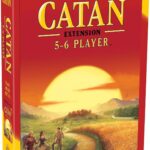 Catan for older kids) is a great starting pick for younger ones, teaching resource management and strategic planning. Its colorful world helps make subjects like economics enjoyable for kids.
Catan for older kids) is a great starting pick for younger ones, teaching resource management and strategic planning. Its colorful world helps make subjects like economics enjoyable for kids.
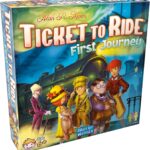 Ticket to Ride is your go-to railway adventure game, ideal for enhancing geography skills while requiring only basic literacy. Plus, it’s a hit with different age groups, making it great for family sessions.
Ticket to Ride is your go-to railway adventure game, ideal for enhancing geography skills while requiring only basic literacy. Plus, it’s a hit with different age groups, making it great for family sessions.
For math whizzes in the making, give 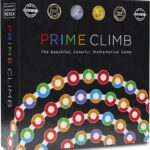 Prime Climb a try. It’s all about mastering math concepts through fun gameplay, with a cool spiral board that keeps everyone engaged.
Prime Climb a try. It’s all about mastering math concepts through fun gameplay, with a cool spiral board that keeps everyone engaged.
 Pandemic has a cooperative spin, perfect for teaching about teamwork and strategy in STEM-based scenarios. It’s a game where players win or lose together, encouraging collaborative problem-solving.
Pandemic has a cooperative spin, perfect for teaching about teamwork and strategy in STEM-based scenarios. It’s a game where players win or lose together, encouraging collaborative problem-solving.
Want kids to get creative with language? 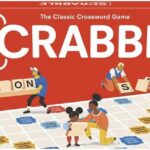 Scrabble (
Scrabble (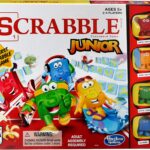 Scrabble Jr. for the younger kids) is a classic that ups the wordplay challenge. It sharpens vocabulary while sparking friendly competition.
Scrabble Jr. for the younger kids) is a classic that ups the wordplay challenge. It sharpens vocabulary while sparking friendly competition.
Then there’s 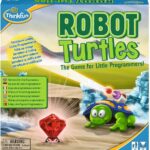 Robot Turtles for those dipping toes into coding. It introduces programming logic in a playful way, and it’s great for preschoolers and early primary kids.
Robot Turtles for those dipping toes into coding. It introduces programming logic in a playful way, and it’s great for preschoolers and early primary kids.
 Blokus presents a vibrant twist on geometrical puzzles. It’s about spatial awareness and strategic piece placement, and if color and pattern matter, this one’s a keeper.
Blokus presents a vibrant twist on geometrical puzzles. It’s about spatial awareness and strategic piece placement, and if color and pattern matter, this one’s a keeper.
For a mix of history and strategy, 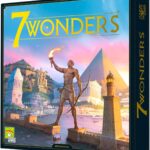 7 Wonders is fantastic. This card drafting game walks through civilizations, with layers of strategy that older kids will love exploring.
7 Wonders is fantastic. This card drafting game walks through civilizations, with layers of strategy that older kids will love exploring.
 Sequence offers easy rules but a surprisingly deep level of strategy, making it suitable for teaching planning and pattern recognition.
Sequence offers easy rules but a surprisingly deep level of strategy, making it suitable for teaching planning and pattern recognition.
MindWare’s 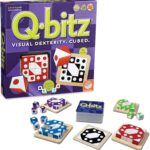 Q-bitz (
Q-bitz (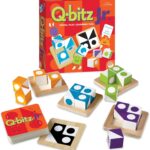 Q-bitz Jr. for the younger kids) is a visual challenge that keeps the little ones engaged, promoting cognitive speed and visual-spatial skills. Quick rounds mean it never drags on.
Q-bitz Jr. for the younger kids) is a visual challenge that keeps the little ones engaged, promoting cognitive speed and visual-spatial skills. Quick rounds mean it never drags on.
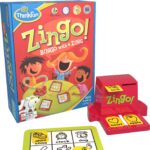 Zingo! is tailored for younger learners, enhancing reading and matching abilities in a picture bingo style. It packs a fun punch for little readers and their families.
Zingo! is tailored for younger learners, enhancing reading and matching abilities in a picture bingo style. It packs a fun punch for little readers and their families.
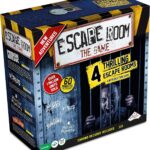 Operation: Escape Room turns your living room into a puzzle-solving zone, honing critical thinking and teamwork skills, with room for everyone to contribute.
Operation: Escape Room turns your living room into a puzzle-solving zone, honing critical thinking and teamwork skills, with room for everyone to contribute.
For insights on real-world economics, 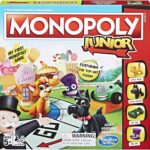 Monopoly Junior (
Monopoly Junior (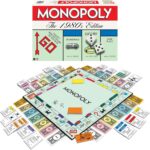 Monopoly for older kids) breaks down basic financial principles in a friendly format for younger kids.
Monopoly for older kids) breaks down basic financial principles in a friendly format for younger kids.
Lastly, 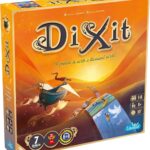 Dixit delivers creativity and storytelling, powered by stunning cards and imaginative gameplay, encouraging expression and narrative thinking.
Dixit delivers creativity and storytelling, powered by stunning cards and imaginative gameplay, encouraging expression and narrative thinking.
Each of these games has unique elements that cater to various subjects. Dive into a few that catch your eye and see how they transform learning from a task into an adventure.
Maximizing Learning Outcomes with Board Games
Playing board games isn’t just about the thrill of victory. When woven into your homeschool curriculum, these games work wonders for learning outcomes. Properly incorporating them into your routine ensures you get the best educational bang for your buck.
Scheduling regular game sessions is one approach. You might aim for a specific game day each week, making it a special occasion that everyone looks forward to. This routine keeps learning through play consistent and gives everyone a chance to wind down while still engaging their brains.
Set clear educational goals for each game session. Are you focusing on vocabulary skills today or perhaps critical thinking? Align your choice of game with these objectives so that each session contributes to a larger learning plan.
Using games as a break between more structured learning sessions can also help. The shift in activities gives young minds a breather, helping maintain focus and enthusiasm when they return to books or traditional lessons.
Case studies show that families who actively integrate games into learning observe significant academic and social benefits. Outcomes include boosted cooperation skills, better problem-solving strategies, and higher retention rates of factual knowledge. Trying to achieve such outcomes means games need to be treated as serious teaching tools.
Dual-purpose games, ones that stretch adaptability across different subjects, are gems. They provide the flexibility to approach learning from multiple angles. Whether it’s using Monopoly for math or 7 Wonders for history, these games expand educational possibilities.
Finally, engaging with fellow homeschoolers to share successes and new game ideas can be a huge asset. It enriches your bank of resources and encourages a community that values fun in learning. You never know—the perfect game for your curriculum could be just a conversation away.
Building Family Bonds Through Game Time
Board games bring everyone around the table in a way that promotes family togetherness, turning learning into a shared adventure. Time spent playing isn’t just learning time; it’s quality time where family members can connect, laugh, and learn more about each other.
The act of playing together teaches valuable life skills like communication and teamwork. Board games naturally create situations where kids can practice their negotiation skills or work to solve problems collaboratively, all in a low-pressure, fun environment.
Some games require a team effort to win, which can help teach the importance of cooperation and empathy. You get to share successes and setbacks, building resilience while learning to appreciate others’ perspectives and strengths.
Homeschooled families often report that these play sessions become a cherished routine that enriches their days. They turn tables into arenas where creativity kicks in and strategies come alive—spaces where everyone can unplug from digital distractions and enjoy real-world interactions.
Testimonials from families highlight how shared gaming experiences reshape their dynamics, adding layers of fun to learning. Siblings who might have been rivals elsewhere find common ground here, making memories and strengthening bonds through shared goals.
If you’re new to incorporating board games into your homeschooling, try setting up a regular ‘game night’ where everyone has a say in what gets played. Rotate the responsibility of game selection and watch as ownership and enthusiasm follow.
This gaming time isn’t just about entertainment; it’s an investment in nurturing communication, cooperation, and emotional intelligence. Creating these traditions offers lessons that academic books might miss, contributing to well-rounded, happy learners.
Final Thoughts: Embracing Fun Learning for Educational Success
At the heart of homeschooling with board games is the blend of enjoyment and education. These games aren’t just pastimes—they’re valuable tools that turn learning into an engaging, hands-on venture. When kids look forward to a game, they’re also looking forward to learning, often without realizing it.
By now, it’s clear that educational board games do more than reinforce academic concepts. They foster critical skills, enhance family relationships, and turn homeschooling into a dynamic, interactive journey. The best part? Everyone involved gets to have fun and learn together, evolving both individually and as a family.
Openness to trying new games is key. With countless options out there, you’re bound to find those few that mesh beautifully with your learning goals and family dynamics. Embrace this variety and you may find that the games your kids love also become invaluable teaching aids.
Incorporating these games into your routine transforms homeschooling from a static to an immersive experience, where curiosity leads learning. Whether you’re just starting this adventure or looking to enrich your current methods, board games offer a path where knowledge and enjoyment coexist.
Here’s the bottom line—exploring new games and making play central to your education routine can create lifelong learners who delight in discovery. With board games, every round played offers a fresh opportunity to learn and grow. Embrace this playful potential and watch as learning becomes the family’s favorite pastime.
Additional Resources
- Article: Top 15 Writing Tools for Homeschool Students
- Search Amazon for a boardgame to suit your family’s needs
When you click and purchase from any of our links, we may get a small commission at no extra cost to you. For more information, please see our affiliate disclosure.

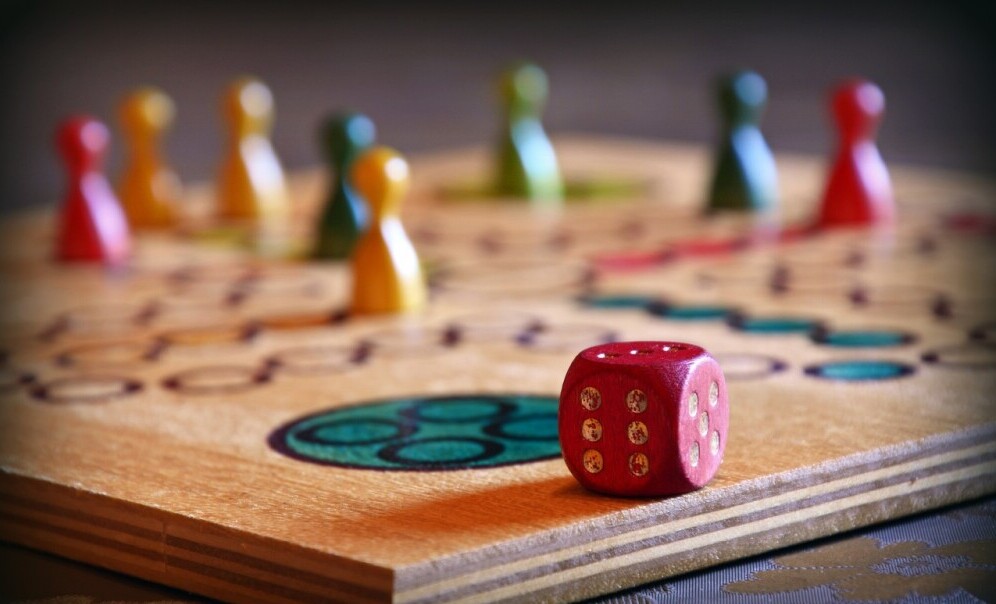

This post is such a great resource for homeschooling families! I love how it emphasizes the importance of making learning fun with educational board games. The variety of games you’ve shared offers something for every age and learning style, which makes it easier to find the right fit for our family. The tips on how to incorporate them into our routine are really helpful, too—it’s a great reminder that learning can be interactive and enjoyable. Thanks for sharing these ideas; I can’t wait to try some of these games with my kids!
Hello Maksim!
I’m so glad this post is resonating with you! I totally agree that educational board games can make learning so much more enjoyable for kids. It’s great to see how these games can cater to various age groups and learning preferences, making them a versatile addition to any homeschooling routine.
Which games are you thinking of trying first? I’d love to hear about your experience once you’ve played with your kids!
Angela M 🙂
I love this take on using educational board games in homeschooling! It’s fascinating how they seamlessly combine learning and play, making education enjoyable rather than a chore. I’ve found that games like Ticket to Ride not only enhance geography skills but also teach kids how to plan ahead—a skill that goes beyond the classroom.
Do you have any recommendations for games that cater to mixed-age groups? I’d love to hear how others balance the challenge level for younger and older players. Also, I wonder how often families incorporate these games into their routines—do most stick to a weekly game night, or is it more spontaneous?
Personally, I’ve seen the value of games like Pandemic in fostering teamwork. It’s amazing to watch kids strategize and problem-solve together, building critical thinking in such a fun way. This article is a fantastic resource for anyone looking to make learning more engaging and interactive!
Hello Herman!
Thank you so much for your thoughtful comment! I completely agree—educational board games really make learning so much more enjoyable. It’s amazing how games like Ticket to Ride and Pandemic not only engage kids but teach them valuable skills like planning, strategy, and teamwork.
For mixed-age groups, I recommend games like Catan or Dixit—both offer a great balance for younger and older players. Catan allows kids to learn negotiation and resource management while being simple enough for younger players to understand, yet engaging enough for older ones. Dixit, with its open-ended storytelling and creativity, is easy to play with mixed ages and encourages imagination and communication. Qwirkle is another great one for all ages because it teaches pattern recognition and abstract thinking while being accessible to younger players.
As for how often these games are incorporated into homeschool routines, it really depends on the family. Some families opt for a weekly game night to unwind and bond, while others incorporate games more spontaneously into their daily learning routine. Games can be used as breaks during longer study sessions or as a fun, interactive way to end the day. The key is finding a balance that feels natural and enjoyable for everyone!
It’s so great to hear how Pandemic has worked for your family. It really is a fantastic game for fostering teamwork and critical thinking. I hope these suggestions help, and thanks again for sharing your thoughts!
Angela M 🙂
This is such a helpful list! I’ve found that educational board games are a fantastic way to make learning more engaging for kids. We’ve used games like Ticket to Ride for geography and Catan for critical thinking. Do you have any recommendations for games that work well with a mix of ages? Also, how do you balance structured learning with game time in a homeschool schedule? I’d love to hear your thoughts!
Hello Zachary!
Great question! Board games can be such a valuable tool for learning, especially in multi-age homeschooling settings. For games that work well across different age groups, I’d recommend Outfoxed! for younger kids playing alongside older siblings—it’s a cooperative whodunit game that builds deductive reasoning. Kingdomino is another great option since it’s simple enough for younger kids but still engaging for older ones. Dixit is fantastic for storytelling and creativity, allowing different age levels to contribute in their own way.
As for balancing structured learning with game time, I like to integrate board games into the curriculum rather than seeing them as a separate activity. Sometimes, I’ll use a game as a “brain break” between more structured lessons, or I’ll assign a game as part of a subject (like Catan for resource management in economics). A weekly game night can also be a great way to reinforce concepts learned during the week in a more relaxed setting.
How do you usually incorporate games into your homeschooling routine? I’d love to hear what works for your family!
Angela M 🙂
I really enjoyed this post. We home school our kids, and also find playing games a fun option for education. Some of our favorites are definitely Scrabble and Monopoly. We also like playing UNO which is great for colors and numbers, plus following rule switches. When my kids were little we always enjoyed Chutes and Ladders as well as Candyland. This article has a great view on how they can help and excellent advice on what to look for with these games. Thanks for the info!
Hello EricSTV!
I love that your family has made games such a big part of your homeschooling! Scrabble and Monopoly are definitely classics, and UNO is such a fun way to build early math and logic skills. Chutes and Ladders and Candyland bring back so many memories for me too! It’s amazing how games sneak in learning while keeping kids engaged.
Do you have any newer favorites that have become part of your routine?
Angela M 🙂
Educational board games have a unique way of blending learning with engagement, making them a powerful tool for homeschoolers. The best games are those that challenge critical thinking while remaining enjoyable enough to encourage repeated play.
Some games focus on core subjects like math and language, while others build problem-solving, logic, or even financial literacy. One challenge is balancing fun with educational value—do games that feel more like traditional learning lose their appeal compared to those with immersive storytelling or strategic depth?
Another factor to consider is adaptability; some games cater to a wide age range, making them ideal for homeschooling families with multiple children, while others are more specialized. How much weight should parents give to replayability versus targeted learning outcomes when selecting board games for their curriculum?
Hello The Investor!
You’ve captured the beauty of educational board games perfectly!
Finding that balance between fun and learning is key—some kids love a direct academic challenge, while others thrive with immersive storytelling or strategy-based play. Replayability is a big factor for us, too, especially with different ages in the mix.
I think it comes down to a mix—some games for targeted learning and others just for the joy of playing and building skills naturally.
What kinds of games have worked best in your homeschooling experience?
Angela M 🙂
These are some really great games! My older daughter homeschools all 4 of her children, who are in 12th, 10th, 8th and 6th grades. She has homeschooled them from the start.
They really enjoy playing games and we love playing the games with them. I have enjoyed playing Catan, but I don’t think the kids have played it. The game that really intrigued me was Escape Room. I will show this to my wife, so that we can consider it for the family. We have enjoyed a subscription with Finders Seekers Mysteries. The kids all enjoy figuring out the clues.
Great post!
– Scott
Hello Scott!
It’s wonderful that your family enjoys playing games together! That shared experience must make for some great memories. Catan is such a classic—if the kids haven’t tried it yet, they might love the strategy involved! Escape Room sounds like a fantastic choice, especially since they already enjoy Finders Seekers Mysteries.
Do you find that puzzle-based games help them with problem-solving in other areas? It’s amazing how games can teach so many skills while still being fun!
– Angela M😊
-I can’t quite say that I’ve seen a lot of these games, perhaps not even growing up as a child.
-About what age would you say, for example, would be a cutoff for using Monopoly v.s. Monopoly Jr. for the kids?
-I think that games can be a great way for students to positively turn certain learnings habits in an upward direction that aren’t already headed as such; targeting certain subjects sounds like a smart approach, as well.
-I also think that doing some of this while in a family setting is also a positive thing, as long as it is approach appropriately and/or accordingly.
-Best,
ALEJANDRO G.
Hello Alejandro!
That’s a great point! Many of these games have flown under the radar, but they can be such valuable tools for learning. As for Monopoly vs. Monopoly Jr., I’d say the transition depends on the child’s attention span and math skills. Around ages 8-10, many kids are ready for the full version, especially if they enjoy handling money and making strategic decisions.
I completely agree that games can help reshape learning habits in a positive way! Have you found any particular subjects where board games have been especially helpful? And I love your point about family game time—it’s such a great way to bond while reinforcing important skills. Do you have any favorite games from your own childhood that you think still hold up today?
Best,
Angela M 😊